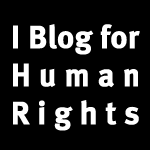Letter published in Church Times 21/03/09
Dear Editor
I was surprised to see the report in last week's edition in which Jan Ainsworth accused the Liberal Democrats of adopting a "confusing" policy on faith schools.
The party's spring conference in Harrogate saw a detailed and informed debate over education policy, which included discussion of faith schools and their place in the development of cohesive communities. Conference overwhelmingly rejected calls to close faith schools, instead affirming the quality of teaching and the positive ethos which make them so popular and effective and calling for improvements in terms of inclusivity and openness which will enable more pupils, parents, teachers and communities to benefit from them. The new policy has been welcomed by the respected Christian think-tank Ekklesia as a crucial development in the public debate about how to make faith schools better and by Accord as the first political party policy to put the national good above sectarian interests
The Liberal Democrats are proud to be the only major party who trust their members to make policy and whether on conference floor or at fringe meetings, many people from a range of religious faith perspectives or none were able to contribute to this important debate and make policy that is relevant and realistic.
Yours faithfully
Revd Simon Wilson
Chaplain and Press Officer
Liberal Democrat Christian Forum
Tuesday, March 24, 2009
Subscribe to:
Post Comments (Atom)




3 comments:
It is not realistic to shut 'Faith Schools' but we should not encourage new ones & certainly not with taxpayers money. I dispute that Catholicism, Anglicanism, Sunni, Shia etc are 'Faiths'. They are Doctrines. The Faith is Christianity, Islam etc. As we are still seeing in Northern Ireland these Doctrinal allegiances are creating violence & division and they have no place in schools
Coldcomfort
One will generally find that extremist "fundamentalists" will agree with you. They will generally claim to be just "Christian" or "Muslim". If forced, they will claim that those who use denominational labels are just some sort of heretic, not true followers of the faith.
You will find, for example, that in Christian circles, a group claiming to be "non-denominational" will often have some sort of extreme evangelical ideology.
Those who use denominational labels are being more honest - they are being open about what they stand for, and accepting that theirs is not the only interpretation. They are usually much more moderate than those who don't use such labels.
Post a Comment